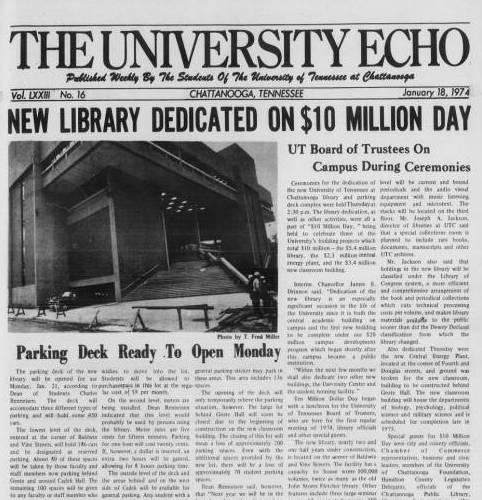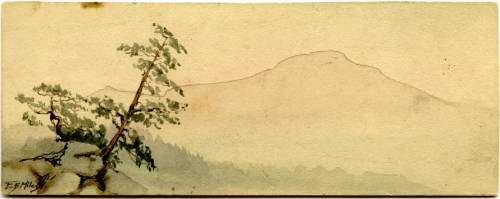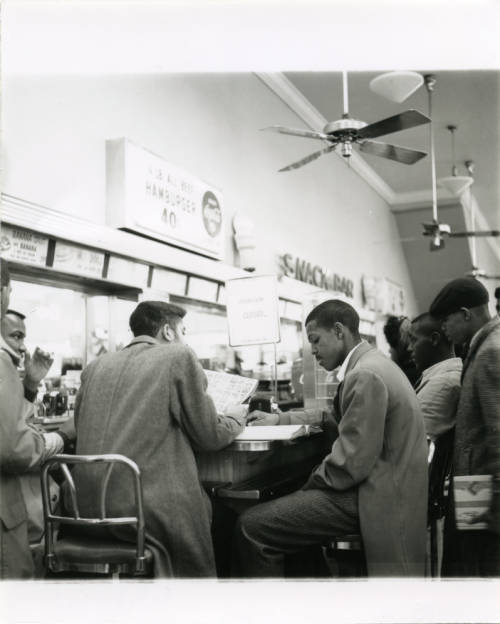The Special Collections unit of the University of Tennessee at Chattanooga (UTC) Library has reached a milestone of publishing more than 6,000 unique primary sources in UTC Digital Collections.
All resources are freely available to researchers on campus and in the wider community. Last year, UTC Digital Collections attracted more than 600,000 site visits from researchers around the globe. The most popular collections are two of the first resources Special Collections digitized, the Moccasin yearbooks and Echo student newspaper.

Special Collections began its mass digitization efforts in earnest in 2013 by scanning popular collections, including the Emma Bell Miles Southern Appalachia art, correspondence, and journals, which document the life of of the Walden Ridge naturalist, artist, columnist, and author who lived in the late 1800s and early 1900s. The digital surrogates have supported recent research on the topic by UTC undergraduate student, Dalton Burks, who authored her 2022 honors thesis, in part, about Emma Bell Miles. As part of her research, Burks conducted three interviews with experts on Miles that she deposited in Special Collections and repository published in UTC Digital Collections alongside the original art, letters, and diaries by Emma.

Special Collections works with a variety of stakeholders to build and sustain UTC Digital Collections. The repository partners with faculty to identify collections that could be used in the classroom. An good example of such a collection is the Chattanooga Civil Rights Movement Demonstrations photographs, a collection of photographs of the lunch counter sit-ins and protests spearheaded by Howard High School students in February 1960. This collection has been used in several assignments, including a series of exhibition panels designed by twenty-six students in a history class. Special Collections has also partnered with community groups, such as the Mayor’s Council for Women’s History Subcommittee to collect oral histories. In other cases, the repository has worked with instructors and their students to build collections, including the Chattanooga Foodways oral histories and Chattanooga LGBTQ+ oral histories.

Personnel in Special Collections weigh opportunities to digitize materials in the collections based on a number of considerations, including copyright concerns, popularity and use, and alignment with the repository’s collection development policy. Once materials are published, Special Collections ensures they are harvested by WorldCat and the Digital Public Library of America to maximize use.
Reaching 6,000 digital objects is an achievement that would not be possible without the contributions of the student assistants and interns who contribute their time and considerable talents to the repository. Special Collections employees an average of twenty student assistants and five interns annually. Since 2013, student assistants and interns have contributed nearly 40,000 hours to the repository’s processing, description, and digitization efforts.